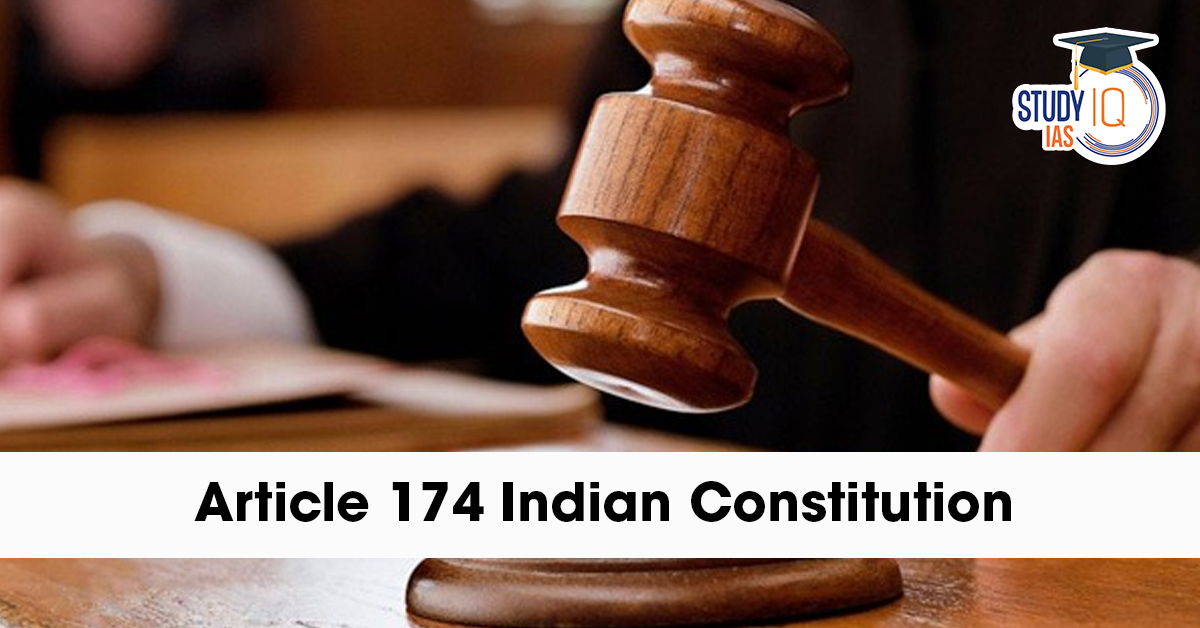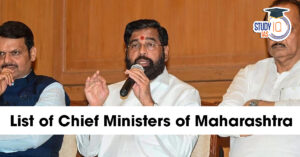Table of Contents
Context: The Manipur Congress has sought clarification from the Governor on the constitutional status of the State Assembly, which hasn’t convened since August 2024, raising concerns about a possible violation of Article 174(1) of the Constitution.
About the Issue
- Background: President’s Rule was imposed in Manipur on February 13, 2025, after CM Biren Singh resigned on February 9 amid ethnic violence.
- Congress Concern: The Manipur Congress asked Governor Ajay Kumar Bhalla whether the 60-member Legislative Assembly is still “alive” or “constitutionally dead,” as it hasn’t met since August 2024.
- Constitutional Point Raised: Article 174(1) of the Constitution states that no more than six months should pass between two sittings of a Legislative Assembly.
- Since the last sitting was on August 12, 2024, the next should have been held by February 11, 2025.
- Governor’s Action: The Governor had summoned the Assembly for February 11, but later declared it null and void due to the CM’s resignation.
- Congress Stand: Argued that the Assembly was not dissolved or suspended at the time of the resignation, so Article 174(1) remains applicable.
Article 174 of the Constitution – Sessions of the State Legislature
“The Governor shall from time to time summon the House or each House of the Legislature of the State to meet at such time and place as he thinks fit, but six months shall not intervene between its last sitting in one session and the date appointed for its first sitting in the next session.”
Key Points
- Power to Summon State Legislature:
- The Governor has the constitutional authority to summon (call), prorogue (suspend without dissolving), or dissolve the State Legislative Assembly.
- Governor Acts on Aid & Advice:
- Though the article says “as he thinks fit,” in practice, the Governor must act on the advice of the Council of Ministers headed by the Chief Minister (as per Article 163 and SC judgments like Shamsher Singh vs State of Punjab).
- Mandatory Time Gap:
- There must not be a gap of more than 6 months between two sessions of the State Legislature (as per Article 174(2)(a)).
- Applicable to Unicameral and Bicameral States:
- Applies to both Houses in bicameral states (Legislative Assembly + Legislative Council) and the only House in unicameral states.
Judicial Interpretation
- In State of Rajasthan v. Union of India (1977), the SC clarified that the Governor is bound by ministerial advice in routine matters like summoning the House.
- Governor cannot act independently unless under special constitutional provisions like Article 356 (President’s Rule).


 List of Chief Ministers of Maharashtra F...
List of Chief Ministers of Maharashtra F...
 Electoral System in India 2026: SIR Upda...
Electoral System in India 2026: SIR Upda...
 SLAPP Suits: Meaning, Examples, Impact o...
SLAPP Suits: Meaning, Examples, Impact o...

























